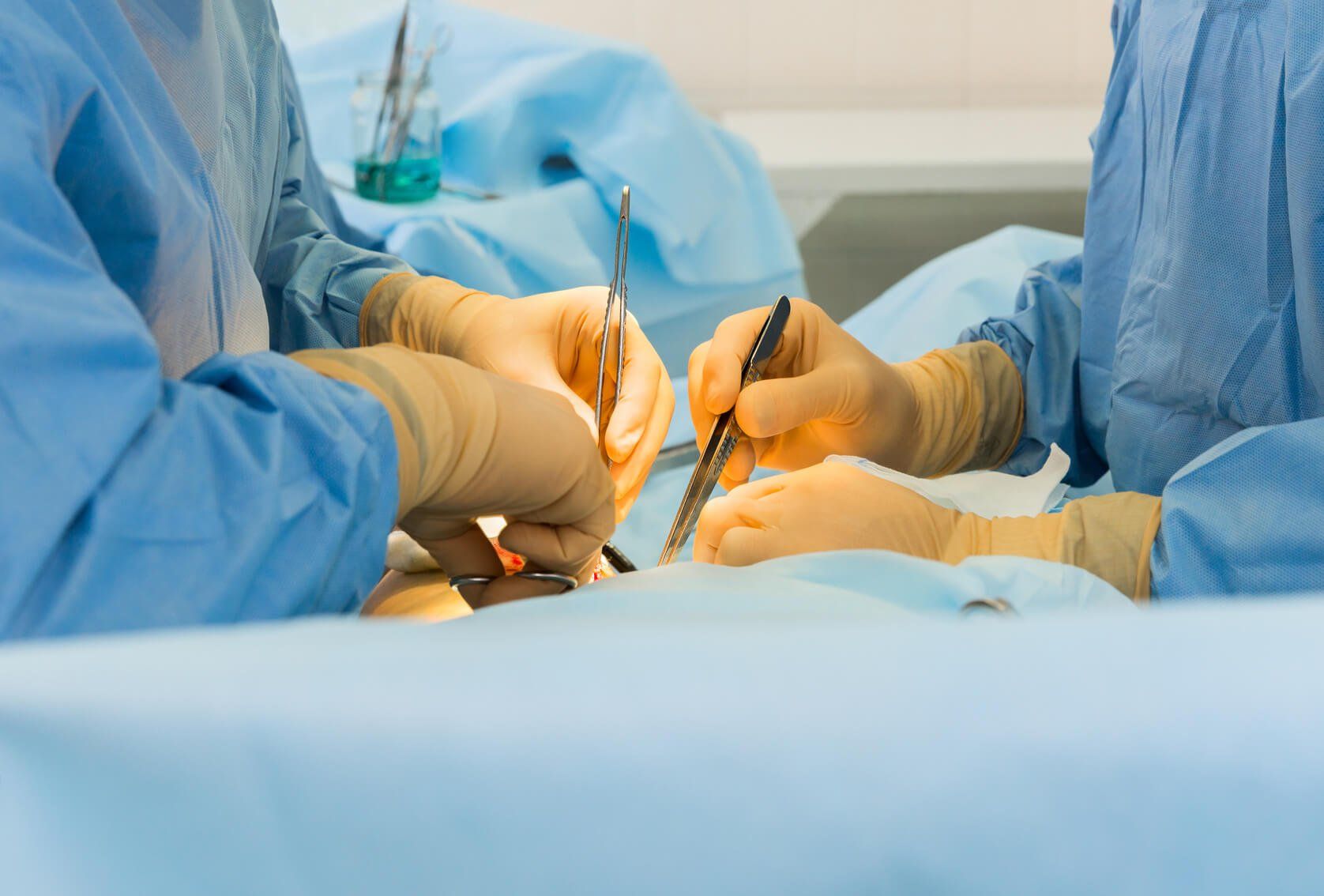Now seeing all patients, with enhanced safety protocols! Call (248) 480-0085
to schedule your appointment.
4550 Investment Dr. Suite 290 | Troy, MI 48098 |
(248) 480-0085
TMJ Surgery
In general, we prefer nonsurgical TMJ treatments, but in some cases, surgery is the best approach to remedy your TMJ. We will help you understand your treatment options and when TMJ surgery is right for you. We work with many of the best surgeons in the Detroit area and will refer you to one who can assess your condition and recommend the right TMJ surgery for you.
If you are looking for comprehensive TMJ treatment
in Detroit, please call (248) 480-0085
or email us
for an appointment with TMJ dentist Dr. Jeffrey Haddad at the Michigan Center for TMJ & Sleep Wellness.

Why Is TMJ Surgery Often Considered a Last Resort?
TMJ is a complex condition, or, more likely, a complex group of overlapping conditions that are still a long way from being fully understood. TMJ surgery is appropriate for only a small subset of people who have TMJ symptoms, and it’s often not clear who those patients are until after a number of other treatment options have been tried.
When we add to this the fact that TMJ surgery can be expensive, may carry the risk of serious complications, and has an uneven record of success, it’s generally considered best that surgery should be postponed until we have a good sense that it is necessary and likely to be effective.
Why Is TMJ Surgery Often Considered a Last Resort?
TMJ is a complex condition, or, more likely, a complex group of overlapping conditions that are still a long way from being fully understood. TMJ surgery is appropriate for only a small subset of people who have TMJ symptoms, and it’s often not clear who those patients are until after a number of other treatment options have been tried.
When we add to this the fact that TMJ surgery can be expensive, may carry the risk of serious complications, and has an uneven record of success, it’s generally considered best that surgery should be postponed until we have a good sense that it is necessary and likely to be effective.

Types of TMJ Surgery
There are a number of different surgical approaches to TMJ treatment. The most common surgical approaches to TMJ include:
- TMJ arthrocentesis
- TMJ arthroscopy
- TMJ arthroplasty
- Total joint replacement
There are other surgeries that are less commonly used. These involve reshaping and repositioning the upper or lower jaw.
TMJ Arthrocentesis
This is a minimally invasive TMJ surgery. It is barely more invasive than the use of injectable TMJ medications. In TMJ arthrocentesis, the jaw joint is injected with a saline solution. The saline solution is intended to mobilize the jaw joint, reduce pain, and improve function. The saline injections are used to break up scar tissue in the jaw joint. It also adds extra fluid to the joint, which helps lubricate the joint. Medications may be included in the injection.
Recovery time is minimal, and there are few risks.
TMJ Arthroscopy
Arthroscopy is when small incisions are used to insert a visual device and tiny tools into the joint so that surgical procedures can be performed with minimal interference with the skin and other tissues.
Arthroscopy can be used for scar tissue removal, disk repositioning, and even disk stabilization.
TMJ Arthroplasty
TMJ arthroplasty is open surgery used to reshape or reposition the jaw joint. In addition to scar tissue removal, disk reposition, and disk stabilization, there are many procedures commonly performed with this type of TMJ surgery. Bone spurs may be removed, and the disk in the jaw joint may be removed. Sometimes it is replaced with an artificial disk, or your own tissue may be used. Other times, the joint may be left without a disk.
Total Joint Replacement
Total joint replacement involves the use of an artificial temporomandibular joint. This is done when the joint has become so damaged that it can no longer function. Damage can be caused either by TMJ or as a result of previous surgeries and their complications.
The temporomandibular joint is one of the most complicated joints in the body, so most artificial joint replacements result in limited functionality, but they can provide effective relief from many TMJ symptoms for some people, and the limited function is often a tremendous improvement for TMJ surgery candidates.
If you are looking for comprehensive TMJ treatment in Detroit, please call (248) 480-0085
or email us
for an appointment at the Michigan Center for TMJ & Sleep Wellness.
All Rights Reserved © 2020 Michigan Center for TMJ & Sleep Wellness | Website by Pro Impressions Marketing Group
| Sitemap

